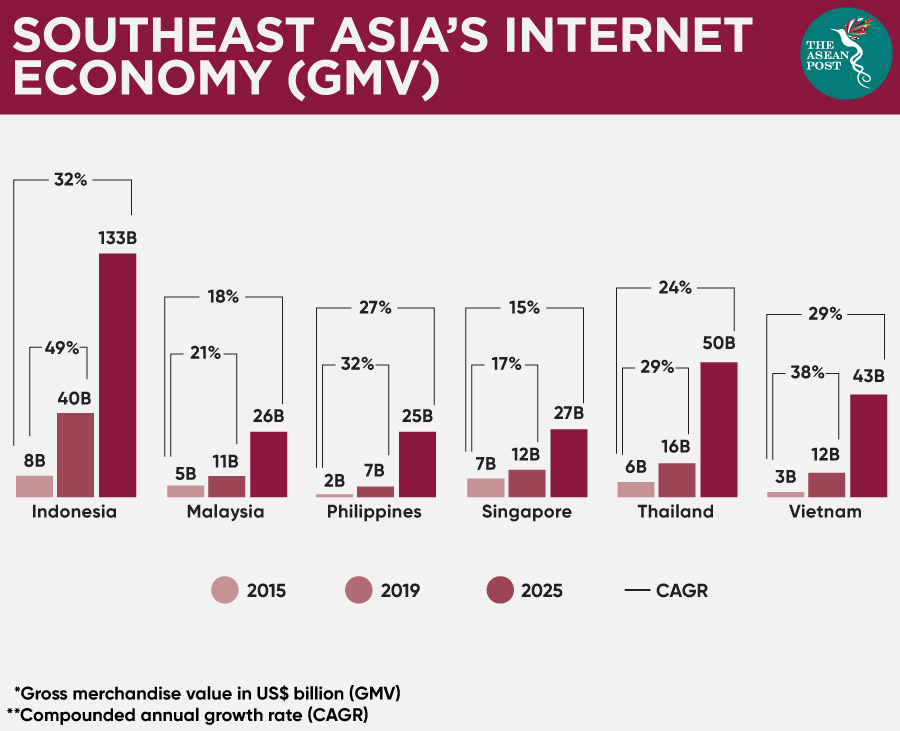Southeast Asia is proving to be one of the most successful and fastest growing digital markets in the world. While the likes of Grab and Lazada have established themselves in the region, many other start-ups are fast-developing unique and innovative forms of services to tap into the lucrative digital economy.
Singapore is currently home to some of the most heavily funded start-ups in the region, including Grab and Sea. Asia’s digital market is fast expanding with investors constantly looking for the next best start-up.
Singaporean venture capitalist, Accelerating Asia recently funded 10 up and coming start-ups in Asia with a combined total of SGD3 million (US$2.22 million) in investment.
“During recruitment, we had touchpoints with over 2,000 start-ups and selected 10 from over 200 eligible applications,” said Amra Naidoo, co-founder of Accelerating Asia. “Our recruitment and selection process allow us a first-look access to emerging technologies and direct deal flow across the portfolio,” added Naidoo.
What does it take to be one of a kind?
The digital economy has incredible potential due to the large proportion of tech-savvy youngsters in Southeast Asia. However, the region's diverse economies, cultures and commercial practices can also pose a high risk for expanding companies.
While international companies have struggled to navigate the ASEAN market, some regional-based start-ups have successfully incorporated hyperlocal services while maintaining a regional lens. Analyst also suggest that one of the main attributes that contributed to the success of companies like Grab is its quick expansion through the region and the adoption of consumer behaviour aspects in the respective countries.

RecyGlo, a Myanmar based recipient of Accelerating Asia’s start-up funding is a waste management platform that aims to achieve a circular economy through zero waste management as well as developing recycling solutions for ASEAN countries. They address pressing issues in the region, such as the illegal trade of waste, in which forced labour is used to retrieve valuable materials from landfills.
“There is a gap between what the public needs and what governments are providing. The priorities are different on both sides, and the gap is widening,” co-founder of RecyGlo, Okka Phyo Maung told The ASEAN Post, adding that “ASEAN can still be a place that revolutionises the sustainability industry and become a model for the rest of the world. The question is taking leadership to solve, challenge and point in the right direction.”
This has become a more concerning issue since China closed its doors to Western waste, indirectly making Southeast Asia the next best destination for it.
ASEAN citizens have very little knowledge on how to manage waste, and may find the process tedious. RecyGlo aims to change that mindset and further penetrate different target groups by innovating its application technology to run on multiple platforms thus, creating flexibility for its many varied users – because waste affects everyone.
Another recipient of the funding is Joni.AI, an artificial intelligence (AI)-powered adaptive assessment platform that personalises education and helps students make sense of their learning data. It is a Singapore-based start-up that is already planning its expansion to other Southeast Asian countries within the year. The learning app aims to meet the needs of personalised education while being affordable.
“We believe that with apps like Joni.AI, good education can be made even better, especially for students who may feel like they are lagging behind but do not have the means to go for expensive tuition classes to catch up,” Joni.AI co-founder (tech), Zong Han told The ASEAN Post, “Students want an enjoyable learning experience,” he added.
The app comes with a 90-day money back guarantee if students or parents are not happy with it. “We also have a web-app that we use with our students who subscribe to our Mentor Plus package. For that, there’s a suite of learning tools in addition to an experienced mentor who is responsible for ensuring students improve,” Zong Han explained.
Other start-ups that obtained funding include investments apps for Bangladeshi farms, and business-to-business applications that increase the efficiency of services like hotel management. These are some of the innovative ideas that are currently taking off in the ASEAN region. Clearly, Southeast Asians entrepreneurs are working to bring unique services to our doorsteps in the near future.
Related articles:
